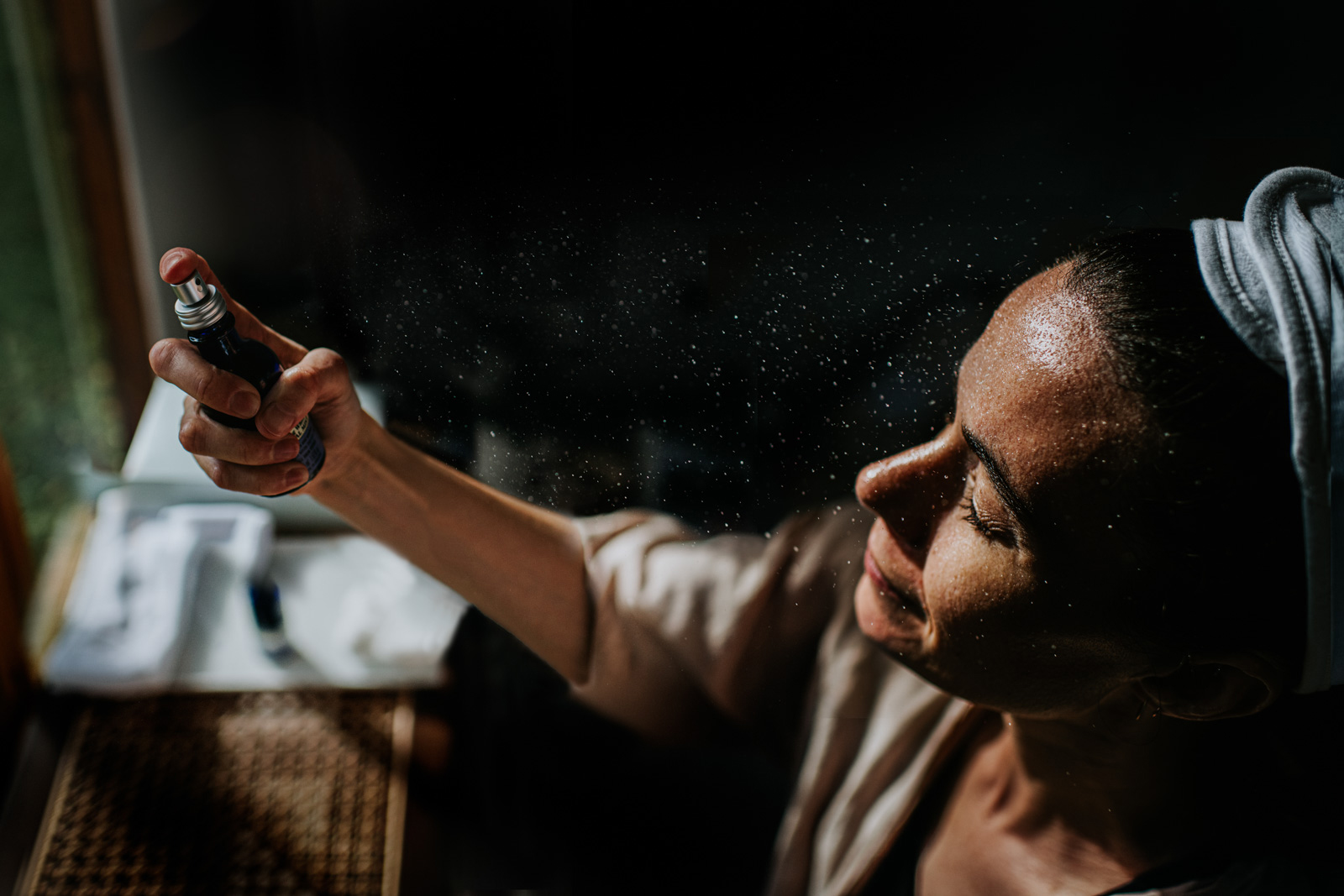A Ramadan skincare reset
The holy month is the perfect time to take a break from makeup and return to natural simplicity
–

For a number of years, fashion brands from DKNY to H&M have cashed in on a dependable “Ramadan rush”. Cosmetics companies, however, have not always got it quite right when trying to appeal to Muslim consumers. In 2018, MAC Cosmetics posted a “Get Ready for Suhoor” makeup tutorial on Instagram which was criticised for missing the mark, prioritising glamour and appearance at a time when many Muslims strive to simplify their beauty regimens.
Indeed, while makeup may be important for some women during Ramadan, many women forgo it completely while fasting and, instead, choose to focus on skincare. A 2021 Statista survey of leading beauty products used during Ramadan showed that 84% of respondents used skincare items, 33% used lipstick and eye makeup and 22% used face makeup.
“Makeup is full of unnatural ingredients and chemicals, and these are absorbed into the skin. Our skin needs time to repair itself and this can only happen when skin cells are not being fed ingredients that harm them,” explains Dr Mona Alyedreessy, co-founder of London-based natural skincare brand L’Araboutique.
Ramadan is an optimal time to embark on a makeup detox, she says. “When we cleanse our bodies from unhealthy food, bad eating habits and overindulgence, we also give our skin some time to rejuvenate and repair itself, which leads to healthier-looking skin. This is why it’s beneficial during fasting hours to focus more on skincare and avoid makeup. It gives our skin a chance to breathe.”
Western beauty brands now seem to be taking heed of Muslim consumer demand for Ramadan and have developed guidance when putting together new products, packages and campaigns centred on the holy month. Global marketing intelligence agency Mintel, for instance, has released tips for beauty brands seeking to cater to Muslim consumers during Ramadan.
Written by Roshida Khanom, Mintel’s director of beauty and personal care insights, the guide points out key concerns such as experiencing dry skin and lips because of fasting and the importance of products being unflavoured so users don’t taste them by accident. Khanom notes that Muslim shoppers may be more inclined to buy from charitable brands and those who understand the purpose of the holy month. “Brands can consider how beauty and personal care products can use self-care to complement spirituality,” she writes.
Many brands have taken the advice on board. L’Occitane, for instance, has created a Ramadan beauty essentials set featuring eight of its curated skincare products. It is available for sale in its Middle East boutiques. The selection includes a hand cream, pillow mist, soap and serum. The Middle East website for Dior Beauty, meanwhile, features a dedicated page for Ramadan essentials, plus blog posts detailing Ramadan skincare tips.
Skincare brand Kiehl’s has also jumped on the Ramadan beauty train with its Ramadan hydration set, which comprises a face wash, eye cream, toner and more. “These products aim to leave your skin refreshed, balanced and moisturised throughout the sacred month,” reads the product description.
However, some might argue that these attempts by Western beauty brands add to the consumerist pressures that Muslims are encouraged to avoid during the holy month. Many may prefer buying from Muslim-owned brands that incorporate Islamic ethics and values such as being halal, eco-friendly and cruelty-free.
Alyedreessy adds that animal gelatine and high amounts of alcohol are often incorporated into mainstream skincare brands. “It is important Muslims support each other’s small and ethical businesses, so that we can thrive as a community,” she says.
She also cautions against buying from brands that support causes not aligned with Muslim values. L’Oréal, the parent company of numerous mainstream beauty and skincare brands, and Estée Lauder have, for instance, both been listed by the Boycott, Divestment and Sanctions Movement.
As Ramadan is a time when Islamic values and ethics are amplified, it’s important to consider a move towards sustainable, natural and organic products, which Alyedreessy says have both spiritual and physical benefits. L’Araboutique’s products are infused with ingredients mentioned in the Qur’an, such as olives, figs, pomegranates and honey, in addition to holy Zamzam water sourced from Saudi Arabia.
“Many skincare products have been made with different mineral and spring waters, so we got the idea to try Zamzam due to its high mineral content and healing properties. We obtained a licence to use it and I can honestly say it’s had a wonderful effect on people’s skin,” Alyedreessy says.
Whether your products feature ingredients mentioned in religious scripture or scientifically proven to benefit your skin, there are many ways to celebrate a return to clean and natural simplicity in your Ramadan beauty routine.
Topics
Get the Hyphen weekly
Subscribe to Hyphen’s weekly round-up for insightful reportage, commentary and the latest arts and lifestyle coverage, from across the UK and Europe
This form may not be visible due to adblockers, or JavaScript not being enabled.